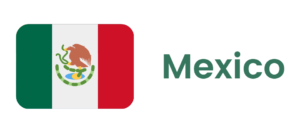President Lula Meets Indian PM Modi in Brasília After BRICS Summit Talks

Argentina is going through a “virtuous” economic recovery, but will face significant challenges in implementing reforms that ensure “sustainable” growth, according to a report by the Organization for Economic Cooperation and Development. The group maintained its GDP growth forecasts for Argentina at 5.2% for 2025 and 4.3% for 2026. (OECD)
Argentina stands out for its “bold” stabilization process among emerging countries, with a recovery process based on fiscal discipline, according to the Institute of International Finance. While public spending saw a real decline of around 30%, 12-month cumulative inflation fell from 270% in July of 2024 to just over 40% in May. “The elimination of taxes and bureaucratic barriers—coupled with a floating exchange rate—is allowing companies to plan for long-term expansion”, said the Institute’s chief economist, Marcello Estevão. (IFF)
The first cargo of soybean meal from Argentina to China was shipped, marking an unprecedented commercial opening for the country’s main oilseed derivative. 30 thousand tonnes were exported from the Rosario port complex to the Chinese province of Guangdong. The shipment is the result of technical negotiations initiated in June with representatives of the Chamber of the Oil Industry of the Argentine Republic and the Center for Cereal Exporters and Chinese authorities. According to Gustavo Idígoras, president of the Chamber, the shipment represents a “real and effective” opening of the Chinese market. Although China is the world’s largest importer of soybean, direct purchases of processed soybean meal were not common. (CIARA-CEC)

President Luiz Inácio Lula da Silva met with the Indian Prime Minister Narendra Modi in Brasília following meetings at the BRICS summit. Four trade agreements were signed on topics involving partnerships in renewable energy, agricultural research, etc. A cooperation agreement was established between Embrapa and the Indian Council of Agricultural Research to stimulate innovation projects in food production. “Our livestock industry owes a great deal to India. 90% of Brazil’s zebu cattle herd is the result of 60 years of intense bilateral cooperation in genetic improvement,” said President Lula. (Government of Brazil)
NotCo’s advertising campaign, by Agência David marketing agency, generated strong backlash from dairy industry organizations, which described the action as a disservice to society. According to a statement signed by Abraleite, Viva Lácteos, and other organizations, the ad “associates milk consumption with widespread gastrointestinal diseases”. The National Advertising Self-Regulation Council ordered on July 4th for the ad to be removed. (Abraleite; Conar)
Sorghum production in Bahia is expected to grow 39.3% in the 2024/25 season in comparison to the previous season. A harvest of 728,000 tonnes is estimated, with a 5% increase in the planted area, which should reach 206,000 hectares. (Conab)
Frosts recorded last week burned corn, sorghum, sugarcane and other crops in some areas between northern and northwestern Paraná and southern São Paulo. Agrometeorologist Marco Antonio dos Santos points out that crop failures were reported between Maringá, Campo Mourão, and Londrina, although localized, according to reports from local sources. The frosts also affected some wheat areas. In the case of corn, because the season is more advanced, it is possible that some frost-affected areas will still be harvestable. Surveys indicate that losses in corn areas may have reached 15% in these regions. (Rural Clima)
The 1st Federal Court of Bento Gonçalves, State of Rio Grande do Sul, convicted five defendants, including employees of Embrapa Grape and Wine and a supplier, because of irregularities in hiring between 2010 and 2017. The decision, published on June 12th, is the result of a public civil action by the Federal Public Prosecutor’s Office based on the Federal Police’s Operation “Liber Pater,” which revealed illicit enrichment, damage to the public treasury, and violations of public administration principles. (1st Federal Court of Bento Gonçalves)
The Agricultural Parliamentary Front in the National Congress requested the Government to “practice firm and cautious diplomacy” in the face of the 50% tariff imposed on Brazil by US President Donald Trump. The National Confederation of Industry stated that the government’s priority should be “preserving the historic and complementary trade relationship between the countries.” According to the FPA, the new rate will have direct effects on national agribusiness, affecting the exchange rate, increasing the cost of imported inputs, and compromising the competitiveness of Brazilian exports. (FPA; CNI)
According to Marcelo Di Bonifácio Filho, an analyst at StoneX, Brazil has a surplus in ethanol, both exporting and importing from the US. “In recent years, the country has imported less American ethanol due to increased local production, driven by the sugarcane harvest and the expansion of corn ethanol”, he said. Di Bonifácio believes that the 50% tariff imposed by the US could impact Brazilian exports, but that reduced availability for sale, due to the increase in the ethanol blend in gasoline from 27% to 30%, could mitigate this impact. “In the long term, the strength of the domestic market and growth in markets such as Europe, Japan, and Southeast Asia could offset any potential market loss in the US”. (StoneX Consultoria)
Forty municipalities in the State of Amazonas have declared emergency due to the floods. According to the latest bulletin released by the state government, nearly 535,000 people have already been affected, and the National Institute of Meteorology forecasts heavy rains for the coming days, with a yellow alert for potential flooding in the northern and central regions of the Amazonas River. (Inmet; Civil Defense)


The Federation of Grain, Pulse, and Soybean Farmers of Colombia and the Argentine Institute of Agricultural Technology have signed a five-year cooperation agreement. The partnership was established under the International Cooperation Agreement between the Ministries of Foreign Affairs of Colombia and Argentina, aiming to strengthen the productivity and competitiveness of corn and soybean crops. (Fenalce; INTA)
Colombian Hass avocados are experiencing a boom, with nearly 55,000 hectares planted and 39,000 already in production. Katheryn Mejía Vergel, executive president of the Colombian Hass Avocado Farmers and Exporters Corporation, highlighted the fruit’s entry into the US market, where exports are expected to triple by the end of 2025. (Corpohass)

Latin America, led by Ecuador, Colombia and Guatemala, is consolidating itself as the main production and export center of Cavendish bananas, benefiting from favorable climate conditions and advanced agricultural technologies. Ecuador is expected to account for approximately 30% of global exports of the fruit by 2025. (AEBE)


The USA Commerce Department announced in April that it would end a long-standing agreement with Mexico on tomato prices on July 14th, imposing a 17% tariff on tomatoes imported from Mexico. The trade conflict could push prices up to 10% in the US market. “There is no scenario where we can absorb these tariffs… the margins are not high enough”, said the chief executive of NatureSweet, an American tomato importer. About 72% of fresh tomatoes in the USA were imported in 2024, and nearly 90% of them came from Mexico, according to the USDA. (NatureSweet; USDA)

Tahiti lime exports increased 30% despite logistical and climate challenges. Volume increases are estimated at 25% to 30% when compared to the previous season. (Limones Piurano)
Associations representing small farmers in Peru are requesting the Congress to approve the New Agrarian Law. “This new regulation will promote investments in the countryside and generate jobs for thousands of Peruvians. It will also integrate us into the export chain, facilitate access to credit and the formal financial system for small farmers, and allow us to open new markets. These are changes we have been waiting for for many years and that are beginning to happen today”, highlights the document signed by 28 associations. (Conapi; Conajup; Unipalma)

Undersecretary of the Ministry of Livestock, Matías Carámbula, said that the possibility of Uruguay joining the BRICS New Development Bank would represent “a great opportunity for improving the country’s agriculture, oriented towards sustainable practices, which coincides with the agenda of the summit taking place in Rio de Janeiro”. (MGAP)

READ MORE:

